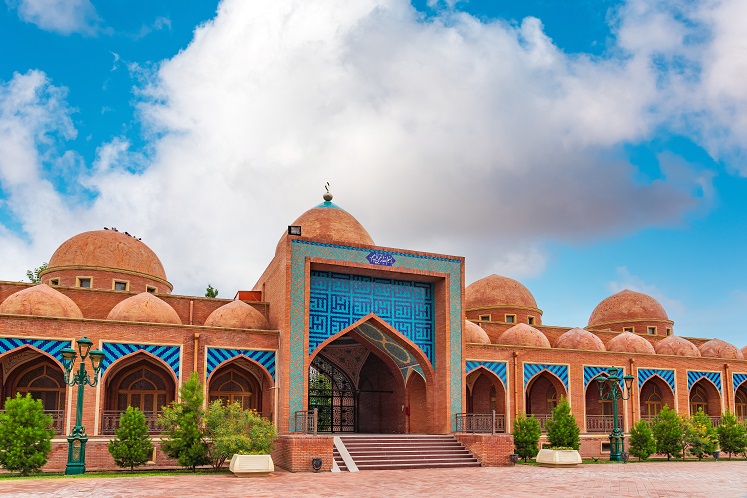An Islamic Shahād Center (often spelled Shahadah Center) is a place dedicated to the proclamation and support of the Shahādah—the core affirmation of Islamic faith: “I testify that there is no god but Allah, and I testify that Muhammad is the Messenger of Allah.” These centers serve as essential hubs for those embracing Islam, offering guidance, community, and resources. While steps toward declaring one’s faith can be taken independently, a Shahād Center provides a supportive environment for new Muslims and non-Muslims alike to understand Islam deeply and integrate comfortably into Muslim life.
In this comprehensive article, we will explore what Shahād Centers are, the services they offer, their role in different communities, how they support converts (reverts), and why they are important in strengthening Islamic identity in Pakistan and beyond.
1. The Meaning and Purpose of Shahād Centers
At the heart of every Shahād Center lies the Shahādah—the Islamic declaration of faith. It expresses the foundations of Islam: absolute belief in Allah as the one true God and in Muhammad (peace be upon him) as His final messenger. Voicing this declaration becomes the defining moment of one’s entry into Islam.
However, Shahād Centers offer more than just a ceremonial moment. They:
- Educate about Islamic beliefs, rituals, ethics, and community life.
- Support individuals emotionally and spiritually during their transition.
- Provide structure, community integration, and long-term guidance for reverts.
Essentially, these centers act as bridges, connecting newcomers to the foundation and essence of Islamic life.
2. Who Visits Shahād Centers and Why
A. Non-Muslims Considering Islam
Many centers welcome people from other faiths or with spiritual curiosity. Visitors can ask questions freely—about prayer, fasting, social values, or any area of Islamic life. This open-door policy fosters understanding and offers a supportive environment for learning.
B. Reverts (New Muslims)
For those who take the Shahādah, the center becomes a place of refuge and education. New Muslims often feel overwhelmed by sudden changes in lifestyle, rituals, and community. Shahād Centers provide clarity, community, and companionship as they learn to pray, perform religious duties, and gradually adopt Islamic traditions.
C. Families and Community Support
Centers also serve the families of converts—whether Muslim, non-Muslim, or cultural Muslims—helping them understand this life decision and encouraging unity and respectful dynamics throughout the reversion journey.
3. Core Services and Programs
Effective Shahād Centers offer multifaceted support through:
1. Guided Declaration of Faith
An imam or knowledgeable Muslim typically oversees the Shahādah declaration. It may happen during a small gathering, in a mosque, or at a community event. Witnesses are present, and new Muslims are welcomed with warmth and prayer.
2. Orientation Sessions
After the Shahādah, centers often provide orientation sessions covering essential acts like:
- Purification rituals (Wudūʾ and Ghusl)
- Prayer basics: calling to prayer, prayer times, direction (Qiblah)
- Fasting, almsgiving, and Quran introduction
- Basic Islamic etiquette, dress, and daily practices
3. Educational Programs
- Revert classes: Weekly or fortnightly sessions that cover Quran learning, Hadith, Islam’s pillars, and moral conduct.
- Language support: Arabic literacy programs or basic religious vocabulary training.
- Fiqh and Aqidah Foundations: Understanding the beliefs (Aqidah), law (Fiqh), and worship essentials.
4. Mentorship and Personal Guidance
Many centers connect new Muslims with mentors—experienced Muslims offering:
- Emotional and religious counselling
- Home visits or check-ins
- Assistance navigating cultural challenges
5. Community Building
- Group support: Through tea sessions, potlucks, and study circles.
- Social events: Especially during Ramadan, Eid, and other significant occasions.
- Local observances: Marking events like Ashura or Mawlid.
6. Certificates and Documentation
While not essential religiously, many centers offer certificates documenting the Shahādah declaration—for personal upkeep, marriages, or legal matters in some countries.
4. The Islamic Shahād Center in Pakistan
In Pakistan, USA, UK, South Africa, and other Muslim-majority nations, Shahād Centers operate within:
- Mosques
- Non-profit organizations
- Islamic schools
Although Pakistan has fewer formally branded Shahād Centers, many mosques naturally function in that capacity—welcoming reverts, offering guidance, and integrating new Muslims into community life.
In cities like Islamabad and Karachi, English- or Urdu-speaking clerics may run weekly revert classes, give certificates, and assign mentors. These services are highly valued by converts who may face language or cultural barriers.
5. The Journey of a Revert
This journey typically unfolds in stages:
A. Investigation
After exploring Islam, a seeker may reach out to a Shahād Center to clarify beliefs and ask key questions.
B. Decision
Once they are convinced, they recite the Shahādah with support, often during a ceremony.
C. Adjustment
Post-conversion, challenges like prayer, fasting, dress, family dynamics, and identity arise. Centers help navigate these changes patiently.
D. Growth
Over time, educational programs, community involvement, and mentorship help the revert grow in knowledge and confidence.
6. Challenges Faced by Shahād Centers
A. Resource Constraints
Many rely on volunteer efforts and donations. Quality depends on available staff, space, and materials.
B. Language and Literacy Barriers
For non-Urdu speakers or those with low literacy, centers may struggle to offer suitable resources.
C. Gender Considerations
Women reverts may require female mentors and private spaces—frequently overlooked but essential.
D. Inconsistent Services
Without formal structure, centers can lack standardized protocols, leading to variable experiences for reverts.
7. Best Practices for Effective Shahād Centers
A well-functioning Shahād Center generally offers:
- Structured curriculum: Covering theology, rituals, ethics, and Quran basics.
- Trained volunteers: Including both genders, with expertise in counseling and teaching.
- Safe spaces: Separate prayer and mentorship areas for women, families, and new Muslims.
- Continual follow-up: Regular check-ins for personal, social, and religious challenges.
- Collaborations: With mosques, schools, NGOs, and psychologists for holistic support.
8. Personal Insights from Converts
Many new Muslims report positive experiences at Shahād Centers:
- “I said the Shahādah quietly, then was helped to learn how to pray and make Wudūʾ. Everyone was friendly and kind.”
- “My mentor took me shopping for an abaya and explained prayer times gently.”
- “After Ramadan classes, I grew more confident in the community, learned to recite the Quran, and made good friends.”
These practical forms of assistance—help with clothing, prayer guidance, companionship—make the center indispensable in a revert’s life.
9. Media and Global Examples
Globally, Shahād Centers exist in:
- The United States (e.g., Discover Islam House)
- Canada (Islamic Revert Network)
- UK (Muslim Association)
- Pakistan (Islamic Cultural Centers, private NGO-affiliated centers)
Each center adapts to local language, culture, and needs while upholding the universal goal of welcoming and teaching new Muslims.
10. Why Shahād Centers Matter in Today’s World
- They preserve unity in a diverse Ummah by helping converts carry Islamic identity with clarity.
- They reduce local isolation, offering reverted confidence and belonging in Muslim communities.
- They strengthen religious conviction through consistent teaching and social support.
- They foster healthy dialogue, counter ideological extremism, and encourage inclusive and compassionate Islam.
Conclusion
An Islamic Shahād Center is more than just a place to recite a declaration—it’s a sanctuary for self-discovery and belonging. These centers stand as welcoming beacons where beliefs are embraced, dignity is respected, and community is built. In Pakistan and beyond, Shahād Centers empower individuals to step into a life of faith and purpose.
For non-Muslims curious about Islam or those at the edge of conversion, a Shahād Center offers guidance tailored to your needs. For reverts, it becomes a base for growth and confidence. And for the wider community, it strengthens the ethos of hospitality and shared belief.

